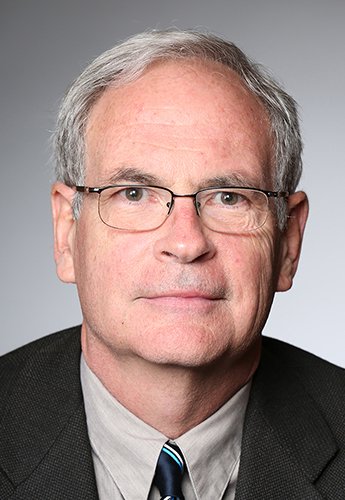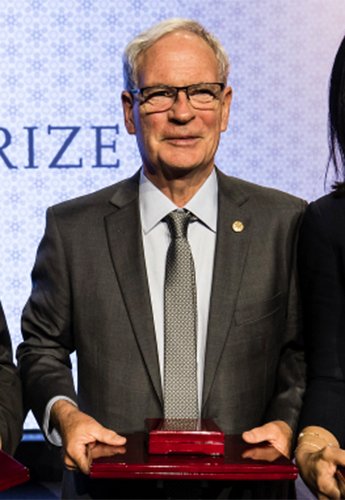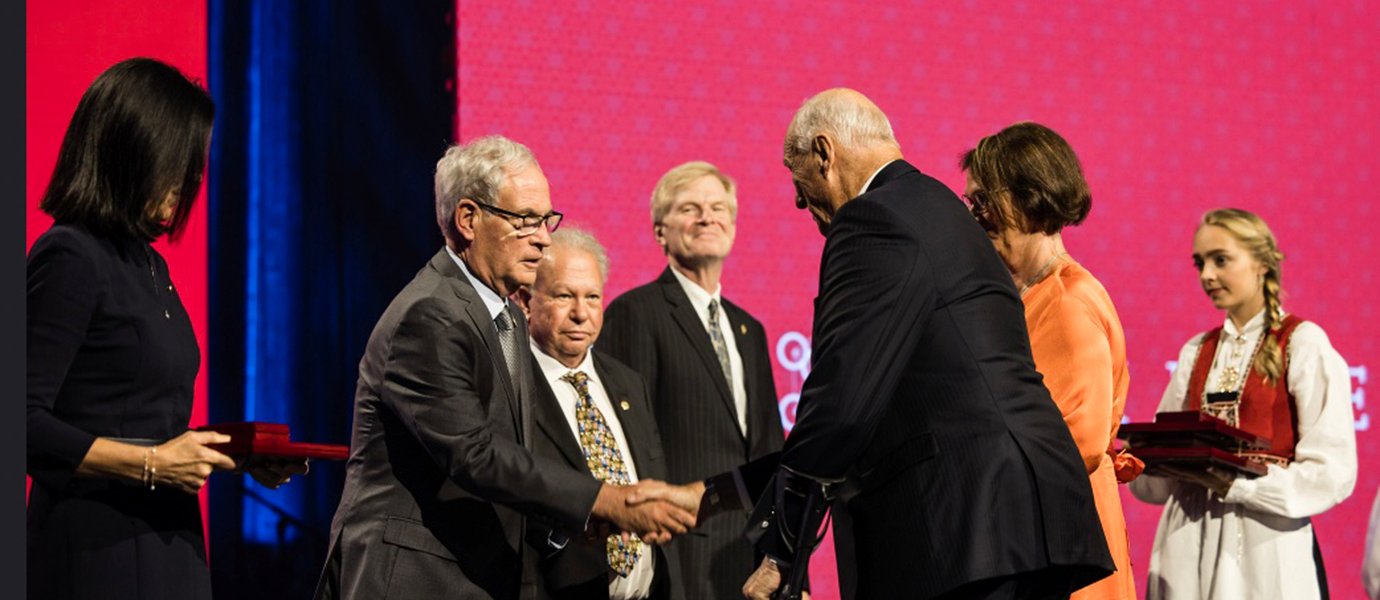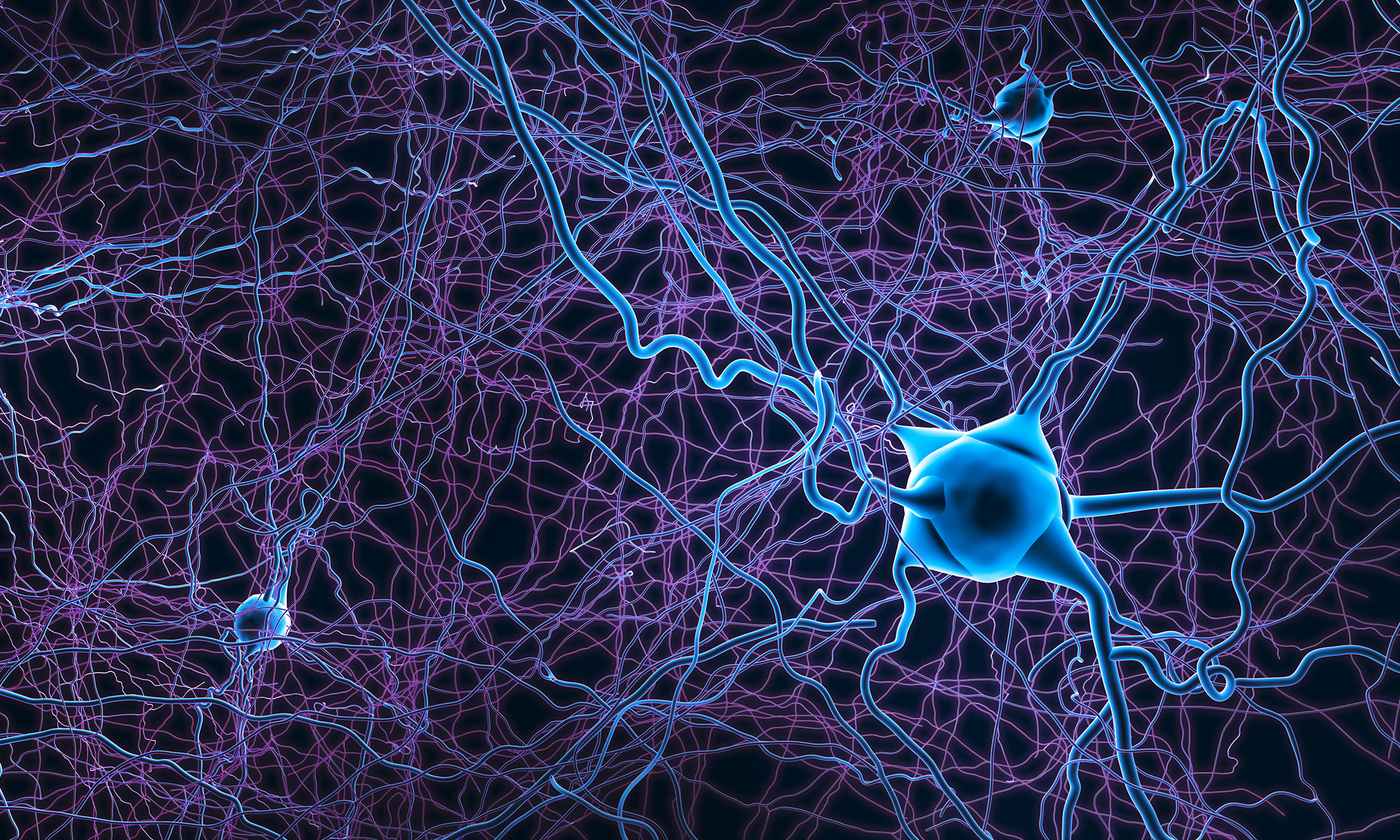The Cornerstone of Success
Biology alum leads the way in neuroscience
 |
| Photo provided by Harry Orr |
In the years that Oakland University was laying its foundation as a world-class academic institution, Harry Orr, Ph.D., CAS ’71, was laying the cornerstone of his career by beginning his OU education in 1968.
The son of an engineer, Dr. Orr believed he would follow in his father’s footsteps before discovering that the study of science came more naturally to him. After a brief stint at the University of Miami, he decided to enroll at the relatively new university near his home, then called Michigan State University-Oakland.
“Biology was a small department then, so there was more opportunity for direct interaction with professors,” Orr recalls.
Orr worked closely with Michael Riley, Ph.D., and credits his labs as the perfect combination of interesting, challenging and fun. It was while under the tutelage of Dr. Riley that Orr decided to continue his research and begin teaching. Upon graduation, he attended Washington University in St. Louis, Missouri to further his education in neurobiology.
Looking back, Orr says that his time at OU launched him on the path of his career. After Washington University, he studied molecular biology at Harvard University and eventually landed at the University of Minnesota Medical School, where he is currently a professor and James Schindler and Bob Allison Ataxia Chair in Translational Research in the Department of Laboratory Medicine and Pathology. He is also the director of the Institute for Translational Neuroscience.
 |
| Harry Orr was awarded the 2022 Kavli Prize in Neuroscience / Photo provided by Harry Orr |
“To say that Oakland University was a stepping stone is a gross understatement,” explains, Orr. “My experience at OU is why I am where I am now.”
Where Orr is now is on the cusp of creating a treatment for spinocerebellar ataxia, a hereditary and progressive degenerative disease affecting motor coordination and cognition. According to Orr, “Patients will succumb 10-20 years after the onset of symptoms. Sometimes the onset can be late in life, at which point something else may take their life. But if that’s not the case, it’s usually the symptoms from this disease that take their life.” Because of his work, Orr was awarded the 2022 Kavli Prize in Neuroscience for outstanding achievement in advancing knowledge and understanding of the brain and nervous system.
| The Kavli Prize recognizes outstanding scientific research across the globe. Winners are celebrated at a ceremony in Oslo, Norway, presided over by the Royal Family. Ten laureates received The Nobel Prize after receiving The Kavli Prize. – kavliprize.org |
 |
| Harry Orr receiving the 2022 Kavli Prize in Neuroscience from the King of Norway / Photo provided by Harry Orr |
More Like This: |


 March 06, 2023
March 06, 2023
 By Rebbecca Steketee
By Rebbecca Steketee
